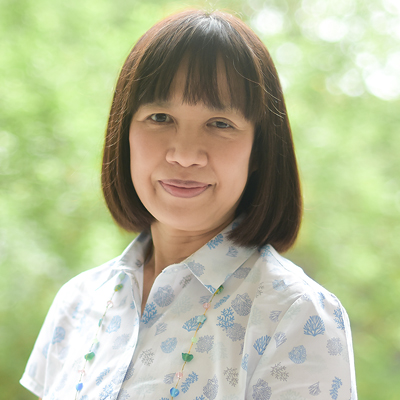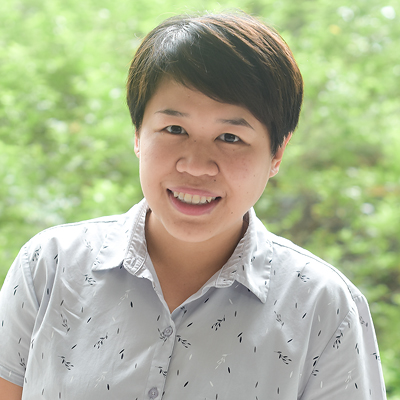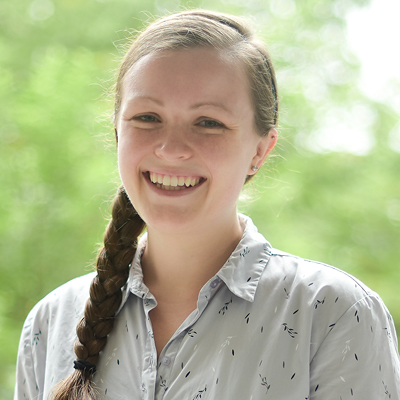The Faculty of Nursing, Chiang Mai University is proud of our strong global network. We have formal agreements with more than 50 institutions, alumni from 18 countries, and two international research centers. We also work closely with the World Health Organization, UN agencies, and governments to conduct trainings for health professionals all over the world.
We are honored to contribute to the international knowledge base through the interchange of ideas, the sharing of resources, and the building of skills.
International Relations Staff

Associate Dean
Assoc. Prof. Dr. Phanida Juntasopeepun, PhD, RN
View profile

International Relations Head
Saranya Chaisang

International Relations Coordinator
Pimpavee Chuaphoon

International Relations Coordinator
Chiara Wuorenmaa

International Relations Coordinator
Tanawat Wongjai

International Relations Coordinator
Pattraporn Srisombat
International Centers and Networks
The Chiang Mai University Faculty of Nursing has two international research centers. The World Health Organization Collaborating Center for Nursing and Midwifery Development was first designated in 2003 and works to strengthen nursing and midwifery in the region.
The Thailand Centre for Evidence-Based Health Care: A JBI Center of Excellence is affiliated with the Joanna Briggs Institute at the University of Adelaide in Australia and plays a strong role in starting other centers for evidence-based care and research in the Asia region.
The Faculty of Nursing is proud to be one of the founding members of the Sigma Theta Tau International Honor Society of Nursing, Phi Omega Chapter-at Large. The chapter was founded to promote nursing and midwifery professional development and to create opportunities for nurses in Thailand to network with nurse leaders and nursing students worldwide.
International Collaborations
The Chiang Mai University Faculty of Nursing has more than 50 formal agreements with academic institutions across the world and a network of alum.
International Partnerships
| Australia |
Central Queensland University (CQU), The University of Adelaide, University of Tasmania |
| Austria |
Paracelsus Medical University |
| China |
Beijing University of Chinese Medicine, Chengdu University, Fudan University, Guangxi Medical University, Hunan University of Chinese Medicine, Jiujiang University, Kunming Medical University, Peking Union Medical College, Peking University, Xi'an Jiaotong University |
| Hong Kong |
The University of Hong Kong, Hong Kong Polytechnic University |
| Indonesia |
Health Polytechnic of Health Ministry of Semarang |
| Japan |
Asahi University, Dokkyo Medical University, Ishikawa Prefectural Nursing University, Kagawa University, Kansai Medical University, Kobe University Graduate School of Health Science and School of Medicine, Mie University Faculty of Medicine School of Nursing, Miyazaki Prefectural Nursing University, Nara Medical University Faculty of Nursing, Otemae University,Toyama Prefectural University, University of the Ryukyus |
| Macao |
Kiang Wu Nursing College of Macau, Macao Polytechnic Institute |
| Malaysia |
Universiti Kebangsaan Malaysia |
| The Maldives |
ADK Hospital |
| Mongolia |
Darkhan-Uul Medical School, Mongolian National University of Medical Sciences |
| Myanmar |
University of Nursing, Yangon |
| Norway |
Nord University |
| The Philippines |
University of the East Ramon Magsaysay Memorial Medical Center, Inc. |
| Scotland |
University of Stirling |
| Singapore |
Nanyang Polytechnic |
| South Korea |
Chungnam National University, Dongguk University, Ewha Womans University, Yonsei University |
| Sweden |
Jönköping University |
| Taiwan |
Taipei Medical University College of Nursing, Tzu Chi University |
| USA |
Columbia University, Duke University, The University of Alabama at Birmingham, University of Illinois Chicago (UIC), University of Michigan, University of Minnesota, University of North Carolina - Chapel Hill (UNC), University of Washington School of Nursing, UTHSC San Antonio School of Nursing |
| International |
APAHL, HelpAge International, Joanna Briggs International, Southeast and East Asian Nursing Education and Research Network (SEANERN) |
WHO Collaborating Center
World Health Organization Collaborating Centre for Nursing and Midwifery Development
Chair: Asst. Prof. Dr. Suparat Wangsrikhun, PhD, RN
suparat.w@cmu.ac.th
The World Health Organization Collaborating Center for Nursing and Midwifery Development at the Faculty of Nursing, Chiang Mai University was designated on 5 September 2003. FON is proud to have been designated a WHO Collaborating Center as it affirms our status as a nursing education institution of international reputation, as well as our role as a leader in nursing and midwifery development.
WHOCC routinely conducts workshops and training to strengthen capacity among nurses and midwives in the region. Many nurses from Bangladesh, Myanmar, Sri Lanka, among other countries have been trained by our faculty members. We have developed clinical practice guidelines and our faculty members have been selected by WHO to be consultants in a variety of areas for institutions and government agencies within Thailand and the Southeast Asia region.
WHOCC is part of the Global Network of WHO Collaborating Centres for Nursing and Midwifery, a network of 36 Centres around the world.
The Thailand Centre for Evidence-Based Health Care: A JBI Collaborating Entity
The Thailand Centre for Evidence-Based Health Care (TCEBH)
was founded in 2002 and is devoted to conducting systematic reviews and developing the capacity of health professionals to conduct periodic reviews. The Centre has been designated a Centre of Excellence by The Joanna Briggs Institute (JBI), headquartered at the Faculty of Health Sciences, the University of Adelaide in Australia.'
The Thailand Centre is a 'JBI Collaborating Entity,' and HQ is at 'The Faculty of Health and Medical Sciences, The University of Adelaide. The Centre routinely holds training for health professionals to develop their skills in conducting systematic reviews. Systematic reviews are essential in identifying best practices and achieving evidence-based clinical practice.
As A JBI Collaborating Entity, the Centre mentors other Centres in the Asia region that hope to quality for affiliation with JBI. So far, the Centre has assisted with starting up three centres: The Japan Centre for Evidence-Based Practice: A JBI Centre of Excellence, The Kobe Centre for Evidence-Based Practice: A JBI Centre of Excellence, and The Chiba University Centre for Evidence-Based Practice: A JBI Centre of Excellence. JBI is proud to help build capacity in the region and looks forward to helping to set up additional JBI centers in the future. The Thailand Centre for Evidence-Based Health Care is one of over 75 JBI Collaborating Entities.
The Thailand Centre for Evidence-Based Health Care: A JBI Affiliated Group
Faculty of Nursing, Chiang Mai University, 110/406 Inthawaroros Road, Suthep, Muang, Chiang Mai, 50200, Thailand
Dr. Nonglak Chaloumsuk, PhD, RN
Director, TCEBH: JBI, Faculty of Nursing, Chiang Mai University
Office: +66-53-934-9128
E-mail: nonglak.c@cmu.ac.th
General Inquiries
Email: thailandjbc@gmail.com
Phone: +66-87-183-9302
Website: https://www.nurse.cmu.ac.th/jbi/
STTI Nursing Honor Society
The Sigma Theta Tau International (STTI) Phi Omega at-Large Chapter is a nursing honor society affiliated with universities in Thailand. It is one of hundreds of chapters under the umbrella of the Honor Society of Nursing, STTI, the second-largest nursing organization in the world. Phi Omega was created to foster a community of nursing and midwifery leaders dedicated to the advancement of the field through knowledge and research.
Phi Omega began as the Thailand Nursing Honor Society at-Large in 2011. It was established under the leadership of the Thailand Nursing and Midwifery Council (TNC) and the Thai Nursing Deans Consortium. In 2011, the Thailand Nursing Honor Society at-Large Steering Committee officially launched the honor society and Dr. Wipada Kunaviktikul was elected as its first president. The first induction was held on 25 May 2011 and on 15 June 2013, STTI granted the honor society charter status and designated it as the Phi Omega at-Large Chapter, chapter number 502.
Both undergraduate and graduate students can apply for membership. Students must complete a minimum number of classes of their program before they are allowed to apply.
Qualifications for membership:
Undergraduate Students
• completed ½ of the nursing curriculum;
• have a GPA of 3.0 or higher (based on a 4.0 grade point average system);
• ranked in the upper 35 percentile of your class;
Graduate Students
• completed ¼ of the nursing curriculum;
• have a GPA of 3.5 or higher (based on a 4.0 grade point average system);
Apply to join the Phi Omega at-Large Chapter at https://www.nur.psu.ac.th/